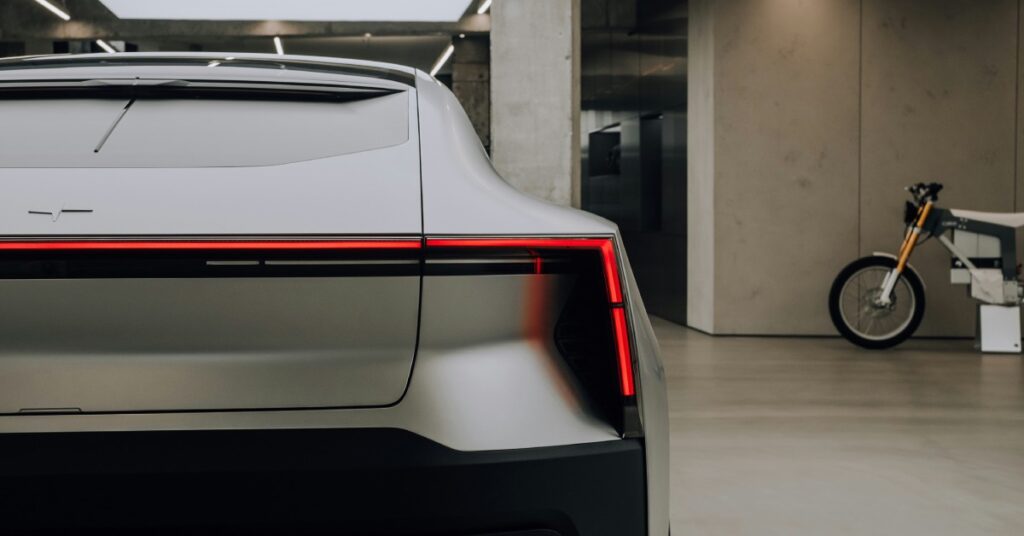In a world that’s always changing, electric vehicles (EVs) are becoming more inevitable in our climate-conscious society. The shift from internal combustion engine cars to EVs is no longer a question of if, but when. This change will impact billions of people’s lives and bring new challenges. But how will society adapt? How will EVs shape our future?
Electric Vehicles Today
Electric vehicles have made significant advancements in recent years in all areas, including battery technology, charging infrastructure, and overall efficiency. These improvements have led to increased range, better charging opportunities, and a less stressful user experience. Major car manufacturers are investing heavily in R&D for electric models, while governments are encouraging the adoption of more eco-friendly vehicles—not just regular cars, but also buses, motorcycles, and trucks.
Out of the millions of cars driving on Nordic roads, about 18% are now electric. This trend is accelerating as an ever-growing share of new cars sold are electric. Popular brands include Tesla, Volkswagen, and Toyota. Norway, in particular, has embraced EVs, with the government offering lucrative incentives to EV drivers. As a result, about 30% of Norway’s car fleet is electric. Governments have set ambitious goals, aiming for a fossil-free transport sector by 2050, which will require a heavy reliance on new EVs.
Electric Vehicles In The Future
Range Anxiety
One concern for many drivers is the range an electric vehicle can travel on a single charge. In emergency situations, the availability of charging stations becomes crucial. Charging stations are not as widespread as gas stations, and combined with the limited range of some EVs, this leads to what is known as range anxiety.
More charging stations are needed, particularly in rural areas, to incentivize people to make the switch to EVs. The current combination of long distances and a lack of charging options poses a major challenge in these regions. However, advancements in battery technology are expected to improve range, making EVs a more viable option for longer trips.
Limited Resources
While electric vehicles are generally better for the environment compared to vehicles with combustion engines, they still rely on rare metals, such as cobalt, which are crucial for EV batteries. Many of these resources are primarily found in the resource-rich but economically poor Democratic Republic of the Congo, where working conditions can be exploitative and hazardous, including practices like child labor. This is all to meet the growing demand for lithium-ion batteries while keeping costs down.
The solution lies in increased R&D funding to find substitutes for these materials and to improve battery recycling processes. Developing batteries with cheaper, more efficient alternatives and enhanced recycling capabilities will decrease reliance on newly mined rare metals. Additionally, stricter regulations and guidelines need to be enforced to ensure safer working conditions, without child labor, in these mining operations.
Expensive To Buy EVs
The high price tag on today’s EVs is a barrier for consumers to fully embrace the technology. A typical EV can cost around $35,000, which is a substantial sum for the average car buyer – especially when compared to the capabilities, range, and attributes of conventional cars at the same price.
However, as production inevitably scales up and technology continues to advance, EV prices are expected to fall, making them more accessible to a wider range of consumers. Increased competition between manufacturers for market share will also push prices down. Government incentives and subsidies can further lower the financial burden, encouraging broader adoption – especially as they aim to meet their sustainability targets.
EV Charging
One major challenge with EVs is the longer time required to charge compared to refueling a traditional combustion engine vehicle. A full charge can take up to an hours rather than minutes, and with the limited range of many EVs, recharging becomes a frequent necessity.
However, EVs offer the convenience of charging at work or home, reducing the need for trips to gas stations. Significant investments are being made to install more charging stations globally. Additionally, technological advancements in charging, such as DC fast chargers, are reducing charging times. In the future, battery-swapping stations could allow drivers to quickly replace a depleted battery with a fully charged one. A cultural shift may also be required, where drivers plan for longer charging times and integrate charging into their daily routines, such as overnight charging at home.
